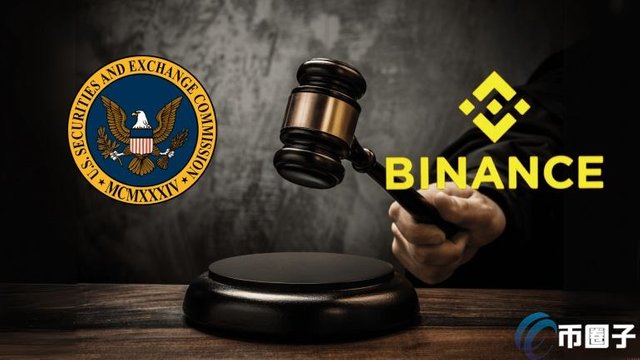The judge supports most of the SEC's charges against Binance! BNB, BUSD, and Earncoin-related charges are dropped
A U.S. federal judge ruled in a court document on the 28th that he would approve most of the charges brought by the U.S. Securities and Exchange Commission (SEC) against the Binance exchange, including that BNB's ICO involved securities sales and that it was not legally registered as a trading broker; at the same time, he also dismissed the charges that the stablecoin BUSD and the Simple Earn program were securities.

A U.S. federal judge ruled in a court document on the 28th that he would approve most of the SEC's charges against Binance, including that BNB's ICO involved securities sales and was not legally registered as a trading broker; at the same time, he also dismissed the allegations that the stablecoin BUSD and Simple Earn plan were securities.
Judge supports most of the SEC's charges against Binance
Amy Jackson, a judge at the District Court for the District of Columbia, ruled on Friday evening to approve most of the SEC's 13 charges against Binance and dismissed the allegations that BUSD, Simple Earn, and BNB's secondary market sales involved securities or investment contracts.
2.jpg.jpg
Specifically, the charges that were approved to continue the trial include:
Former Binance CEO Zhao Changpeng "CZ" and related entities continue to control Binance.US behind the scenes
BNB Initial Token Offering (ICO) and BNB Vault involve securities sales
Binance provides securities trading and fails to register under the Exchange Act
Trading data provider BAM Trading involves misleading investors, selling investment contracts, and violating anti-fraud provisions
The charges that were dismissed and withdrawn include:
The issuance and sale of stablecoin BUSD involves securities sales
The secondary market sales of platform currency BNB involve securities sales
Simple Earn involves securities sales
Jackson said: I think these observations of the SEC are clear and convincing, especially the distinction between "investment contracts" and "tokens themselves", which is consistent with the Supreme Court's earliest interpretation of the term "investment contract", which appeared in the list defining whether it is a "security".
BUSD and coin earning services do not constitute investment contracts
Judge Jackson recognized Binance's abandoned stablecoin BUSD and coin earning services, believing that neither constitutes an investment contract: BUSD's initial description, sales method, and distribution of sales proceeds do not meet the standards of the Howey test.
At the same time, Jackson also cited the opinion of Analisa Torres, a judge in the previous Ripple case, saying that the sale of BNB in the secondary market was not illegal, and therefore withdrew the SEC's charges against BNB's secondary market sales.
Previously, the SEC also cited Terraform Labs' ruling, hoping to provide further evidence for Binance's "BUSD and UST are both securities" for the case, but now it has hit a wall.
Industry insiders: It is already a major victory in the crypto field
FOX crypto reporter Eleanor Terrett expressed optimism about the ruling, and expected that lawyers for companies such as Coinbase, Kraken, and Consensys, which are currently in litigation, will use the ruling on "investment contracts" to consolidate their position in the lawsuit.
Meanwhile, crypto industry lawyer Meta Law Man believes that this is already a big victory for the crypto space: the dismissal of the SEC's allegations of third-party secondary market sales is clearly a victory for the crypto industry.
Last June, the SEC sued Binance, claiming that the company offered sales of unregistered securities (BNB, BUSD, SOL, etc.) and operated illegally in the United States.
Three months later, Binance also filed a motion to dismiss, arguing that the SEC exceeded its regulatory authority and over-exercised its power, while also retroactively expanding the standards and definitions of securities.
Currently, the court hearing for the case is scheduled for July 9; and former CEO CZ also reported to prison at the beginning of last month for violating sanctions from the U.S. Department of Justice and the Treasury Department, starting a four-month sentence.
